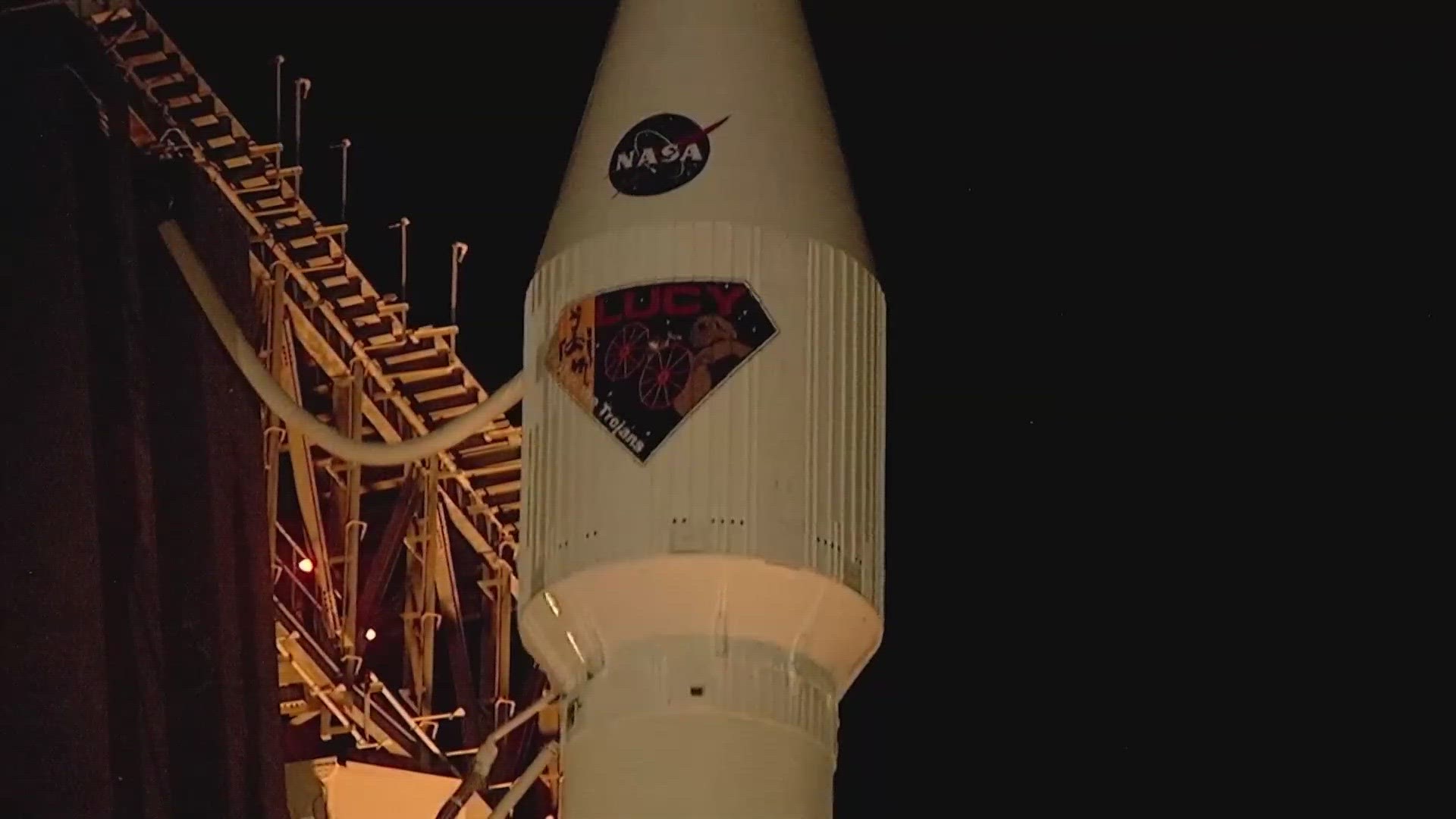LITTLETON, Colo. — A Colorado-built spacecraft named Lucy made a brief unscheduled flyby of a small asteroid Wednesday morning while on its way to study a different asteroid belt even farther away from Earth.
"We expected it to just be a boring old rock in the inner part of the solar system," said Hal Levison, a planetary scientist with the Southwest Research Institute in Boulder. "But there's definitely a mystery going on here, it's not behaving like anything we've ever seen before."
He's talking about an asteroid known as Dinkinesh, or what his team has nicknamed "Dinky" because of its very small relative stature. It's located in the main asteroid belt between Mars and Jupiter, and it was not originally a scheduled stop for Lucy.
Levison is also the principal investigator for NASA's Lucy mission. He said Dinky was not on the original plan, but scientists added a flyby once they realized it was going to be in the direct path on its way to deeper space.
That way they could take the opportunity to test the sensors and practice for Lucy's scheduled encounters, which are eight Trojan asteroids starting in March 2027. The flyby became even more interesting when scientists noticed a strange anomaly in light measurements.
"When you look at how the light is varying when you look at it from Earth and when you look at it from the spacecraft, they're not behaving in a consistent way," he said. "It could be that there's a satellite, or maybe it's a binary, or maybe it's just got a very weird shape."
He said the team could find out what's going on with Dinkinesh as soon as Thursday morning. Lucy was also able take about 57 images of the asteroid, which also could get release to the public soon.
The Lucy Mission
Lucy is a very Colorado mission. The concept and the science were all developed in Boulder at the Southwest Research Institute. The spacecraft was all designed and built by Lockheed Martin at their Waterton Canyon facility in Littleton. And the launch vehicle was designed by United Launch Alliance in Centennial.
The probe was launched into space in October 2021 and its main destination is the Trojan asteroid belt near Jupiter where it's scheduled to study at least eight asteroids using remote sensing technology.
The ultimate objective of the mission is to discover the details behind the origin of the solar system. Scientists believe that about 4.5 billion years ago, the Earth and the other planets in the solar system were formed in a dense cloud of interstellar gas and dust.
“The asteroids are leftovers and have basically been frozen in time, "said Levison. "So in a way they are the fossils of planet formation.”
He said the answers to where we came from are in the asteroids -- all we have to do is go and get them.
In September, the Colorado-built spacecraft OSIRIS-Rex brought back a piece of an asteroid known as Bennu, which is from the inner part of the solar system. Lucy will study asteroids from deeper into space.
"The problem with close by asteroids like Bennu is that we can't tell exactly where it originated because it's been knocked into an orbit closer to Earth," said Levison. "The Trojans got trapped by Jupiter's gravity long ago so we can study them in context. They've been there since the early formation and evolutionary processes of the solar system."
The Lucy Name
The name Lucy has long been associated with evolution and discovery. The Lucy spacecraft is named after the famous Lucy skeleton, the oldest human fossil. Its discovery is considered by many scientists to be the biggest breakthroughs in human ancestry.
The Lucy skeleton was discovered in Ethiopia in 1974 by paleontologist Donald Johanson. In his lectures, he tells a story about how his team chose the name Lucy because the Beetles song Lucy in the Sky with Diamonds was frequently played at the excavation site.
Johanson and Levison will both give lectures at the Denver Museum of Nature and Science on Nov. 16.
Coincidentally, another asteroid has been added to Lucy's itinerary. An asteroid now named DonalJohanson will come into the spacecrafts view on Apr. 20, 2025.
Levison said today’s Lucy mission will add another chapter to our history book.
“My hope is that we’ll see something so unexpected that it’s just going to change the whole story," he said. "We won’t know until we get there.”
SUGGESTED VIDEOS: Latest from 9NEWS

